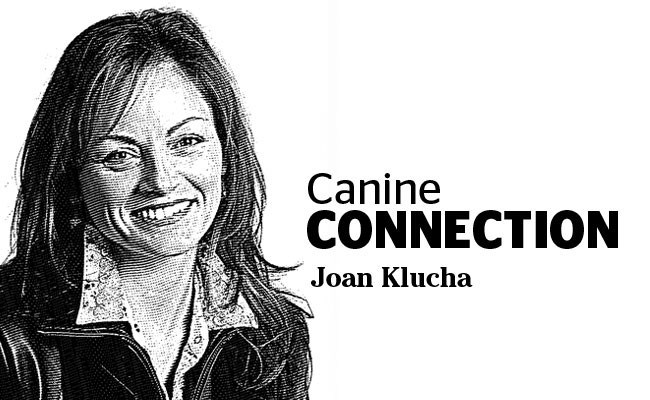We expect a lot from our dogs in our complicated human life.
We expect them to be quiet living amongst other people and animals they can’t see yet hear in condos and townhouses. We expect them to welcome strangers randomly touching them. We expect them to confidently sit at the local coffee shop immersed in street noise.
We expect them to get along with every dog that passes by and, of course, we expect perfect obedience.
If you expect this and more from your pup as an adult dog, you have to be willing to put in a lot to get it, and it all starts with socialization.
Socialization means creating meaningful positive experiences with your puppy for the purpose of preparing them for life in a human world. It is far more than simply exposing them to a coffee shop or noise or people touching them, but ensuring that those exposures are as positive as possible so the young puppy creates a positive association with the experience and builds calm confidence.
Socialization should begin the moment a puppy comes home, any time after eight weeks of age as there is a very short but critical learning stage in a young puppy’s mental and emotional development that ends between 12-18 weeks of age depending on the dog. Smaller dogs have a shorter socialization window while large breed dogs have a longer one. During this socialization window it is imperative that the puppy is introduced to anything you would like them to cope with confidently as an adult. So if you expect your puppy to sit at the edge of a soccer field all day with your adult dog, then begin bringing the young pup to a soccer field now and create a positive learning experience.
Want to walk with Fido down a busy street to a coffee shop? Get going on that walk now!
You can’t over-socialize a dog but you can improperly socialize them, and poorly socialized dogs will have behavioural problems.
The severity of the problems depends on the individual dog’s personality. Common problems are: getting over-excited, an inability to calm down, quickly stressing in different situations or around new people, fearfulness, aggression and anxiety.
As I said, it is important that the experience is as positive as possible and you can control that by how you expose your dog to new experiences.
Let your pup go at its own pace. Don’t shove, drag or force your pup into a situation it is not capable of handling ... yet. What your pup refuses today may be willingly accepted next week. Be patient and don’t compare your dog to others!
Always look for your pup behaving as calmly as possible in any new situation before it is praised or rewarded. A pup that is jumping in excitement may seem happy, but it could be its way of showing anxiety. You don’t want to reward that. Wait for Fido to be calm in the new situation before the treat comes out.
Give your pup space. What this means is that if your pup is showing signs of stress you should back away. You might find that creating space between the pup and the stimulus is all you need to get that calm behaviour to reward. Your puppy doesn’t have to be in the middle of the party to be learning. As long as it is calm, curious and observant of the interactions around it, it is being positively socialized. Besides your own personal lifestyle choices with your dog, there are common social situations that every pup needs. The first is other dogs.
You might think that just because a dog is a dog it knows how to be a dog around other dogs ... well it doesn’t. It needs to not only greet a variety of dogs but also to be able to watch calmly from the sidelines.
Another common trigger for under-socialized dogs is men. Pups need to see tall men, men in dark clothing, hats, sunglasses and facial hair, and be touched by them, all while having a positive experience.
Speaking of being touched, under-socialized dogs have difficulty being touched by strangers. A bag of treats at a local park is a great way to help your puppy learn to accept strangers touching them.
Finally, enroll in a puppy socialization class or private training classes that can assist you with socialization as well as teach you how to use obedience to set boundaries. Having healthy boundaries to live within is also part of socialization.
Joan Klucha has been working with dogs for more than 15 years in obedience, tracking and behavioural rehabilitation. [email protected].



